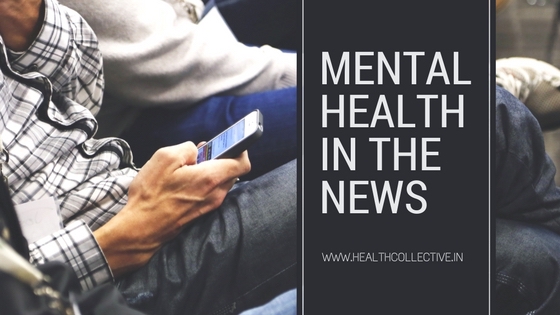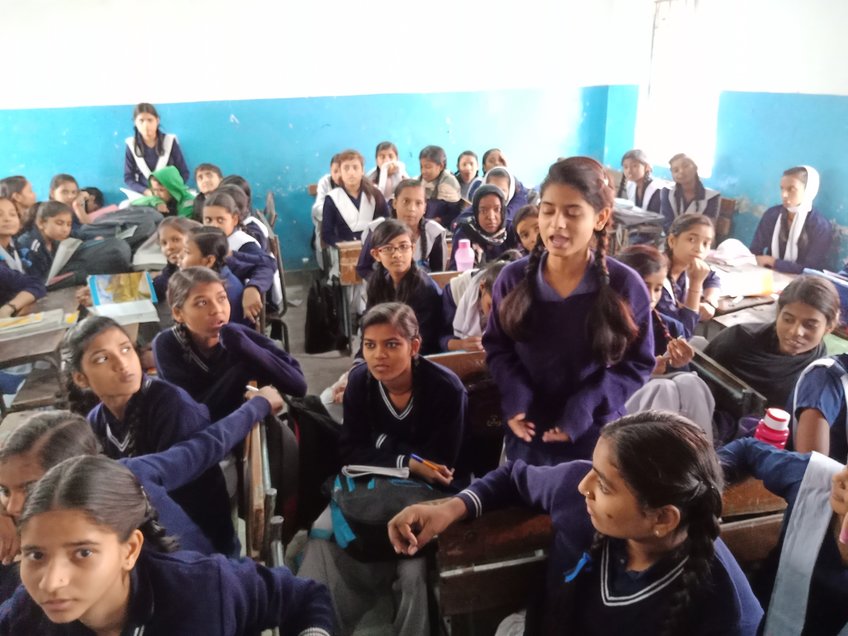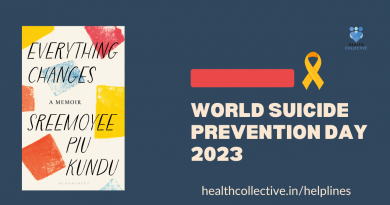Mental Health in the News
THE HEADLINE: AIIMS explores link between yoga and mental health (The Indian Express)
WHAT YOU NEED TO KNOW:
AIIMS director Dr Randeep Guleria said that there are 20 research projects at the premier medical institute looking at the potential health benefits of yoga, including for preventive medicine. The Indian Express references a recent study “showing that it could reduce the severity of depression”. This is reported to be the results of a five year research study of 236 people, conducted under the department of Anatomy. Other research is reportedly looking into effects on migraine, for rehabilitation from stroke, and more. Not surprisingly, perhaps there has been renewed interest since the first Yoga Day, four years, with an increase in funding as well.
Read More Here
THE HEADLINE: 23% rise in suicides in India during 2000-2015 (The Times of India)
WHAT YOU NEED TO KNOW:
Data released by the National Health Profile (2018) reportedly shows a 23% increase in suicide in India between 2000-2015. Most of the deaths were reported in the 30-45 age group. There were 133,623 deaths by suicide reported in 2015, compared to 108,593 deaths by suicide in 2000. Data showed that deaths by suicide were higher among men.
Editor’s Note: If you or anyone you know has ever felt or expressed suicidal thoughts, please reach out for help to a trained professional. A list of helplines is here
Read More Here
For further reading: Reporter’s Diary: Male Suicide in India
THE HEADLINE: Bad news becomes hysteria in crowds, new research shows (Science Daily)
WHAT YOU NEED TO KNOW:
Research done by the University of Warwick suggests that when people share or pass on news stories about terrorism, disease and natural disasters, it becomes increasingly “negative, inaccurate and hysterical”, to quote from the article.
Professor Thomas Hills from the university’s Department of Psychology led the study of 154 participants on social media, who were split into chains of 8 people each.
The article quotes Hills as saying: “Society is an amplifier for risk. This research explains why our world looks increasingly threatening despite consistent reductions in real-world threats. It also shows that the more people share information, the further that information gets from the facts and the more resilient it becomes to correction.”
Read More here
THE HEADLINE: People born with a heart defect are at greater risk of mental health problems (The Conversation)
WHAT YOU NEED TO KNOW:
It’s not just physiological. Patients suffering from Congenital Heart Disease patients are more likely to suffer from anxiety, depression and post-traumatic stress disorder. The heart is central to our nervous system, which helps us deal with and assess threats. For example, the famous “fight or flight” inbuilt system activates as anxiety (and if over-triggered for a prolonged period of time can manifest as panic attacks and constant anxiety). The report suggests that heart problems could affect that in-built ability to assess threats, and compromise the efficiency of the person’s response.
Read More here
For further reading: The Research Study
THE HEADLINE: European mental health institutions fall ‘far below the standard’, WHO reports (CNN)
WHAT YOU NEED TO KNOW:
A World Health Organisation assessment of 75 institutes across 24 European countries and Kosovo, found that the standard of working for these institutes fell below international requirements. In fact, CNN reports:
“Results varied by country and institution. But the overarching finding was the large-scale violation of fundamental rights of institutions’ patients, including “their legal capacity, autonomy, dignity, liberty and security of person, physical and mental integrity and freedom from torture and ill treatment and from exploitation, violence and abuse.”
Read More here
For further reading: The assessment
(Compiled by Sukanya Sharma and Amrita Tripathi for The Health Collective)





